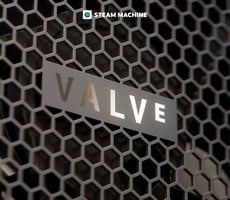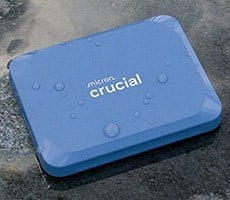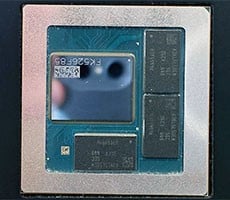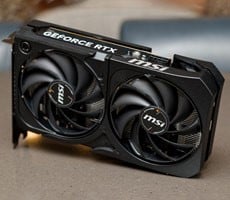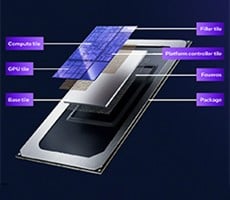EVGA GTX 480 Hydro Copper FTW Review
When it comes to high end graphics cards, too much is never enough. As gamers, our insatiable thirst for more pixel pushing power leads to a never ending cycle of exotic, enthusiast level videocards, including dual GPU models that take up two or three expansion slots on our motherboard. Add In Board (AIB) partner companies like EVGA regularly take supplementary measures to accommodate consumers who desire products that perform faster, run cooler, and operate with less noise than reference design models. For the most part, these steps may consist of more aggressively binning GPUs in order to provide factory overclocked options, redesigning the PCB and heatsink to support more voltage for higher clock frequencies, or replacing the reference cooling design with a more sophisticated aftermarket solution.
Its no secret that reference design cooling solutions have their limits, especially when talking about the smoking hot GF100 GPU. It never takes long for aftermarket coolers to show up and provide enthusiasts with a superior option that usually results in lower temps, less noise, and more overclocking headroom. In order to squeeze every last ounce of performance from a videocard, modders can take the initiative and upgrade the card's heatsink on their own. But sometimes, manufacturers will do it for them.
EVGA GTX 480 Hydro Copper FTW Videocard
The EVGA Hydro Copper FTW GTX 480 looks to eliminate two of the biggest objections against NVIDIA's GF100, heat and noise. Once the custom waterblock from Swiftech is added to an existing liquid cooling loop, this videocard runs dead silent and operates at much lower temperatures than its air cooled counterparts. As an added bonus, it comes overclocked right out of the box, and with further tweaking we expect it to hit even higher levels of performance. Read on as we add this baby to our watercooling loop to see how well it performs in stock form and how far we can push it past its rated speeds.
|
|
|
|
Core Clock
|
752 MHz |
| Memory Clock |
950 / 3800 MHz (Clock Rate / Effective Rate) |
|
Shader Clock
|
1504 MHz |
|
CUDA Cores
|
480 |
|
Total Memory
|
1536 MB GDDR5 |
| Memory Interface |
384 bit |
| Memory Bandwidth | 182.4 GB/s |
| Output Connectors |
1 x Mini-HDMI, 2 x Dual Link DVI-I connectors |
|
Bus Type
|
PCI-E 2.0 |
|
Key Features
|
Microsoft DirectX 11 Support NVIDIA PhysX Technology NVIDIA PureVideo HD Technology NVIDIA SLI Ready NVIDIA 3D Vision Surround Ready PCI Express 2.0 Support OpenGL 3.2 Support Dual Link HDCP Capable NVIDIA CUDA C/C++, DirectCompute 5.0, OpenCL Support |
|
Accessories
|
EVGA Driver / Software Disc EVGA Precision Tuning Utility One Mini-HDMI to HDMI Cable One DVI to VGA Adapter One 6 pin PCI-E Power Cable One 8 pin PCI-E Power Cable Two 1/2" High Flow Fittings Two 3/8" High Flow Fittings User Guide |
| Power Requirements | 1 x 6 pin , 1 x 8 pin PCI-E power connectors Minimum 600 Watt power supply |
|
Dimensions
|
Height - 4.376 in / 111.15 mm Length - 10.5 in / 266.7 mm Weight - 3 lbs Single slot form factor |
|
Warranty
|
Limited Lifetime Warranty (Must register within 30 days) |
|
Price
|
$650 |
While price is always an important consideration, its arguably not the deciding factor when it comes to these overclocked, super-cooled flagship parts. There are plenty of mainstream models that offer batter bang for your buck, but in the world of $600 videocards, cost takes a backseat to performance for many, the most important selling point of this particular market. This Hydro Copper FTW videocard provides the highest clock speeds of any GeForce GTX 480 in EVGA's line up. At 752MHz core, 1504MHz shader, and 950MHz memory, this GPU is rated well beyond reference specifications. How much this translates into increased frame rates will be revealed on the following pages. But first, we'll take a closer look at the card and included bundle.



